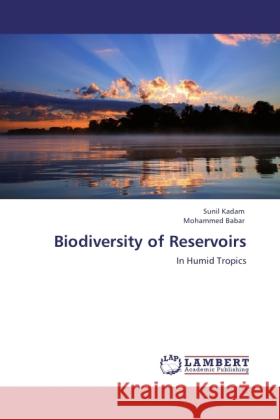Biodiversity of Reservoirs » książka
Biodiversity of Reservoirs
ISBN-13: 9783845444581 / Angielski / Miękka / 124 str.
Aquatic biodiversity includes all organisms living in fresh water reservoir. These aquatic organisms contribute to (1) food (2) medicine and other use for mankind. Use of fish and growing of fish and fishing is a common practice everywhere. The benefits of the development of aquatic biodiversity are: (i) Food production-particularly of animal protein obtained for common people; (ii) Providing new employment opportunity to rural people thereby checking migration of people; (iii) Improving economic condition of rural people in particular through integrated project; (iv) Utilization of waste food and organic wastes for food production. Keeping in view the importance of aquatic organisms in shaping the nation's economy the present volume intends to highlight some important aspects of aquatic biodiversity. This textbook focuses on different organisms studied by the authors. The contents have been organized in 'self-contained' units for ease of understanding. The initial chapters deal with fundamental aspects of reservoir and hydrochemistry. The organisms are then analyzed, with emphasis on the important characters and systems of classification for each category of organisms.











